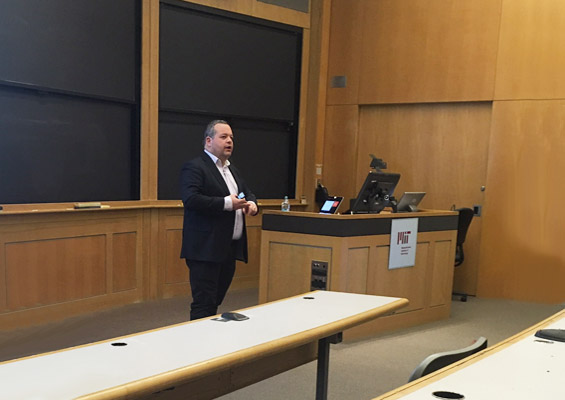
Delft University of Technology (TU Delft) is the largest and oldest public technological and engineering school in Dutch, and one of the best in the world. The past two decades witnessed exciting changes within TU Delft: the number of campus students grew from 13,000 in 2000 to 25,000 in 2018; the number of international students doubled during 2013 to 2017; the first TU Delft MOOC was launched in September 2013 and today it has published more than 90 MOOCs on edX.
At his xTalk on Nov. 14th, Willem van Valkenburg, the manager of the Department of Teaching & Learning Services at TU Delft, introduced the MOOC system structure and the concept of blended learning, and reflected on the impact and future development of TU Delft online learning.
How did TU Delft develop its MOOC structure step by step?
Inspired by the idea of MIT OpenCourseWare (OCW), TU Delft realized the increasing importance of online learning and pioneered a series of programs: TU Delft OCW in 2017, iTunes U in 2010, Delft x MOOCS in 2013, and TU Delft Open Science program in 2016. In TU Delft’s strategic framework for the following 2018-2024 period, the idea of “open” learning is deeply embedded. Today, the Delft Extension School is based on three components (MOOCs, blended education, online courses), lead by E-Dean and Director of Education, and supported by the Research & Innovation team. It aims to educate the world, and improve the quality of education.
What constitutes a successful online learning experience?
TU Delft’s online education programs are targeted towards different learners: from children to seniors, from college students to working professionals. Therefore, when designing an online class, TU Delft considers the feature of targeted learners and tailors the experience from eight dimensions: supportive, interactive, active, contextual, innovative, flexible, diverse, and inclusive. For example, to suit the packed schedule of professionals, an online course is usually shorter in length (4-6 weeks) and lighter in workload (around 4 hours per week). To ensure the quality of online learning, TU Delft has developed a rigorous 4-stage quality cycle control: plan, produce, run, and evaluate. It employs data analysis and seeks support from a professional course team to further improve the quality.
What is the impact of online learning on campus education and what is TU Delft’s plan for the future?
Since campus students are the beta-testers of MOOCs, there proved to be an interactive and positive cycle of improvement between campus and online education. Professional and comprehensive online classes also provide students with a new channel of resources. From faculty’s perspective, blended learning (flipping the classroom) encourages students to study the material together and in most cases improves class performance. And the process of developing a MOOC leads lecturers to re-think and refine their teaching approach. In the future, TU Delft envisions further development of different types of education. The school administration offers solid support for a blend of online and on-campus education: it establishes partnership with universities across the world (HKUST, University of Queensland, etc) to let students access more MOOCs; it changes the design of traditional classrooms to better fit blended learning; it also conducts extensive research on the impact of open education and MOOCs to guide future development.
Undoubtedly, the appearance and development of online education has revolutionized the modern way of learning to a certain extent. While some people are concerned about the disappointing quality of some MOOCs, it is reassuring and exciting to see that leading institutions such as TU Delft, MIT, Stanford are dedicated to ensure and improve the quality of MOOCs with a rigorous quality control system. TU Delft’s comprehensive online programs and the concept of a blend of online and on-campus education are both innovative forms, aiming to help worldwide learners enrich horizons and expand knowledge. In this era of globalization and collaboration, examining the online learning system in a foreign institution definitely offers insights to MIT’s own online education as well.